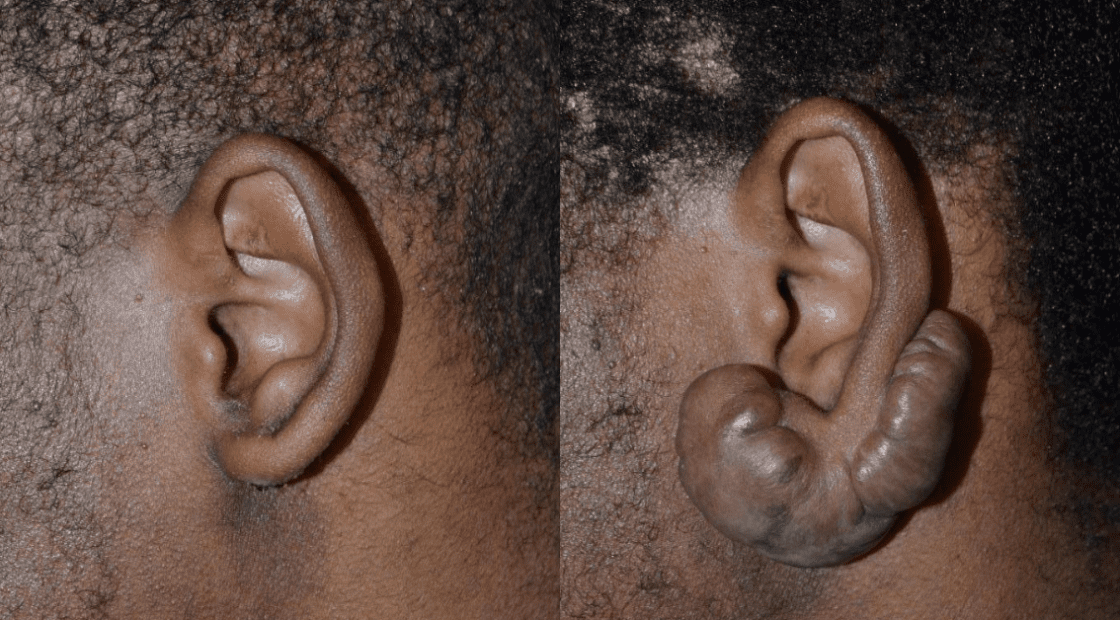Keloid scars are a challenging skin condition that extends beyond the original wound, causing discomfort and aesthetic concerns. At Zenith Cosmetic Clinics, we specialise in advanced treatments to manage and reduce keloid scarring effectively.
What Are Keloid Scars?
Keloid scars are raised, and firm nodules develop due to an overproduction of collagen during the healing process. Unlike typical scars, they grow beyond the boundaries of the initial injury and can continue to enlarge over time. Common causes of keloid scars include minor skin injuries such as acne, piercings, surgical incisions, burns, or even insect bites. Individuals with a genetic predisposition are more susceptible to developing keloids, and they are more common in people with darker skin tones.
Symptoms of Keloid Scars
Keloid scars present as raised, rubbery lesions that may be pink, red, or darker than the surrounding skin. They often feel firm to the touch and can cause discomfort, including itching, tenderness, or a burning sensation. In some cases, keloids can restrict movement if located near a joint, leading to further physical discomfort and mobility issues.
Common Pain Points That Lead to Treatment
Many individuals seek treatment for keloid scars due to a variety of concerns, including:
- Physical Discomfort: Keloids can cause persistent pain, itching, and irritation, affecting daily activities.
- Aesthetic Impact: Large or prominent keloid scars on visible areas such as the face, neck, or ears can lead to self-consciousness, anxiety, and reduced self-esteem.
- Functional Limitations: Large keloid scars near joints may restrict movement, causing discomfort when performing everyday tasks.
- Emotional and Psychological Effects: Some individuals feel socially withdrawn due to their keloid scars, which can significantly impact mental well-being.
Effective Treatment Options at Zenith Cosmetic Clinics
Managing keloid scars requires a tailored approach. At Zenith Cosmetic Clinics, we offer several advanced treatments to effectively reduce and manage keloid scarring:
1. Laser Therapy
CO2 laser treatments gently remove keloid tissue by vaporising the scar layer by layer, promoting smoother skin. Laser therapy for keloid scars is an effective way to flatten and lighten scars over time.
2. Steroid Injections
Intralesional corticosteroid injections can help reduce inflammation, shrink the keloid scar, and prevent further growth. This treatment is often used in combination with other therapies for optimal results.
3. Surgical Excision
For larger or more stubborn keloid scars, surgical removal of the keloid may be an option. At Zenith Cosmetic Clinics, our expert surgeons carefully excise keloids, minimising the risk of recurrence through precise post-operative care.
4. Silicone Gel Sheets
The application of silicone gel sheets for keloid scars can help flatten and soften the scar over time. These sheets are worn over the scar to help reduce its size and appearance.
5. Cryotherapy
Cryotherapy involves freezing keloid scars with liquid nitrogen, which helps reduce their size and discomfort. This method is particularly effective for treating smaller keloids.
Why Choose Zenith Cosmetic Clinics?
At Zenith Cosmetic Clinics, we understand that incorrect treatment can do more harm than good. Our experienced practitioners assess and diagnose the type and cause of your keloid scar to ensure the best treatment is selected. We use state-of-the-art technology and evidence-based methods to help you achieve smoother, healthier skin.
If you’re struggling with keloid scars and looking for expert guidance, contact Zenith Cosmetic Clinics today to explore personalised keloid scar treatment options tailored to your needs.
Book your consultation today to take the first step toward clearer, more confident skin.
Frequently Asked Questions
1. Can keloid scars go away on their own?
No, keloid scars do not disappear on their own and may continue to grow over time. However, with proper treatment, their appearance can be significantly reduced.
2. Is keloid scar treatment painful?
Some keloid scar treatments, such as steroid injections or laser therapy, may cause mild discomfort, but numbing agents can be used to minimise pain.
3. How can I prevent keloid scars from forming?
If you are prone to keloid scars, avoid unnecessary skin trauma such as piercings or tattoos. Using silicone gel sheets or pressure dressings on healing wounds can also help reduce the risk of keloid formation.







